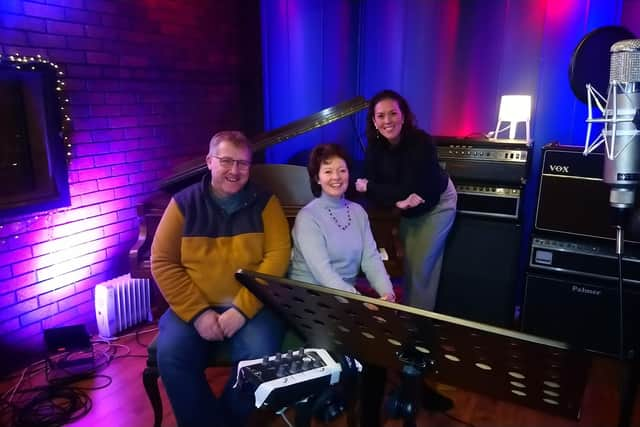Tunes attributed to Robert Burns were actually written by The Secret Bard Carolina Oliphant
and live on Freeview channel 276
For well over a century, songs like ‘Charlie is my darlin’ and ‘Will ye no come back again’ have been sung at Ulster-Scots get togethers across Northern Ireland. ‘A Hundred Pipers’ is a favourite tune for the fife and Lambeg drum and ‘The Rowan Tree’ is often the first melody taught in bagpipe classes.
They were part of the music and culture which crossed the Irish Sea from Scotland in the 19th century and resonated strongly with the Ulster-Scots community here.
Advertisement
Hide AdAdvertisement
Hide AdIt is commonly believed that many of these were written by the great bard himself, Robert Burns, and set to traditional folk airs. But they were in fact written by a woman, a contemporary of Burns, from a very different background, who chose to keep her identity a secret throughout her life, despite the popularity of her work.


In 'The Secret Bard', a special Burns Night programme for BBC Sounds and BBC Radio Ulster, Helen Mark unravels the story of Carolina Oliphant, later known as Lady Nairne. It also celebrates her music with specially recorded performances of some of her songs by local singer, Sylvia Burnside, accompanied by pianist, Jonathan Rea.
Helen goes to Edinburgh's Royal Mile in search of answers from Lady Carolina's descendant, Scottish musician, Freeland Barbour, her great, great, great, great nephew.
The family were ardent supporters of Bonnie Prince Charlie and had their estate confiscated for 17 years after the failure of the 1745 Jacobite rebellion. Many of her songs express the hope and sadness of the Jacobite cause.
Advertisement
Hide AdAdvertisement
Hide AdMatthew Warwick, education officer of the Ulster-Scots Community Network, said it is ironic that the unionist community here have adopted and enjoy songs of Jacobite rebellion without thinking too much about their meaning.
Matthew said: “Many of Lady Nairne's songs, with their enduring themes about place, about people, about traditional life and values, struck a special chord with the Ulster-Scots community and continue to do so.”
Anne Lorne Gillies, one of Scotland's best known performers and singers, said: "Burns was the boy for the love songs, but the humanity and warmth of Carolina's songs makes her a close second in terms of importance."
Dr Frank Ferguson, director of the Centre for Irish and Scottish Studies at the University of Ulster, believes it is time for the achievements of 'The Secret Bard' to be better recognised and celebrated by Ulster-Scots.
Advertisement
Hide AdAdvertisement
Hide AdHe said: "Important as Burns was, the Scottish connection is also about a host of other significant people and we need to know more about their work and what it meant to the Ulster-Scots community."
Tune in tomorrow on both BBC Sounds and BBC Radio Ulster at 6pm to discover more about the life and times of 'The Secret Bard' and enjoy Sylvia Burnside's renditions of some of her best known songs.
The Secret Bard is presented by Helen Mark and produced by Kathleen Carragher. The programme is a Yamal production for BBC Radio Ulster and BBC Sounds, with assistance from the Northern Ireland Screen Ulster Scots Broadcast Fund.